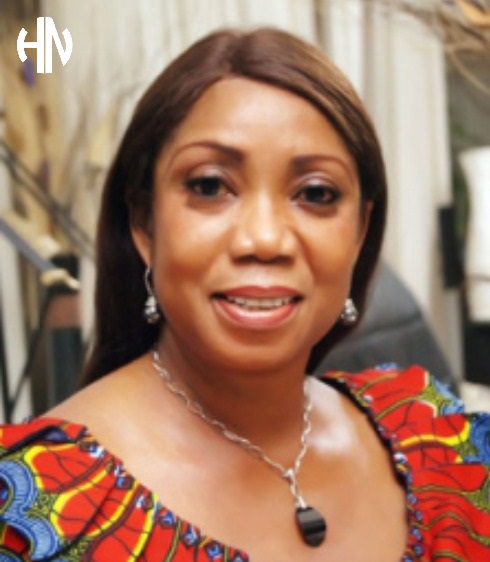Introduction
A recent lawsuit filed against the Lagos State Government by an Igbo individual, challenging the use of Yoruba language in official documents (alongside English translations), in the education sector, health, industrial sectors has sparked heated reactions across the state. Many Lagosians see this legal action as an affront to Yoruba culture and a misuse of hospitality extended to non-indigenes.


Polls conducted by Headlinenews.news reveal that 98% of Yoruba respondents support the Lagos State Government’s initiative and call for even stronger measures — including land ownership protections for indigenes, modeled after international best practices such as Dubai’s preservation of Emirati heritage.
Broad Support Across the Southwest
It is not just ordinary Lagosians backing this initiative. The policy enjoys widespread support across the entire Southwest region. Governors of other Yoruba states have praised the Lagos State Government’s stance, calling it long overdue. Traditional rulers, opinion molders, leaders of thought, socio-cultural organizations, political leaders, and grassroots stakeholders have all lined up behind the effort to prioritize Yoruba language and heritage.
This groundswell of support underscores a critical point: the preservation of Yoruba identity is not a Lagos-only issue. It is a pan-Yoruba agenda — a united front across the Southwest that affirms culture, language, and lineage as sacred and non-negotiable.
Historical Context of Lagos and Yoruba Identity
Lagos, originally a Yoruba settlement, has been central to Yoruba civilization for centuries. From its role as part of the Awori and Benin-influenced kingdoms, to its colonial transformation into Nigeria’s capital city, Lagos has always been anchored in Yoruba culture.
Migration and commerce over the last century have made Lagos cosmopolitan, but the Yoruba people see the preservation of their language and heritage as non-negotiable. Just as Hausa–Fulani traditions remain protected in northern Nigeria, and Igbo heritage is actively safeguarded in southeastern states, Yoruba culture in Lagos demands equal recognition.


Comparative Examples in Nigeria
The Lagos initiative is not unique. Across Nigeria, states actively promote their native languages and cultures:
Abia State: Governor Alex Otti’s government has prioritized Igbo language teaching in schools and official documentation — a policy welcomed within the state and left unchallenged by other ethnic groups.
Northern States: Hausa is widely used in governance, courts, and education, reinforcing cultural identity.
Ondo, Osun, Ekiti, Oyo: Yoruba is integrated in schools and state affairs without resistance.
The double standard — where Yoruba efforts in Lagos are contested, but similar initiatives elsewhere pass without protest — is what many Lagosians and Yoruba leaders across the Southwest find unacceptable.
International Comparisons
Around the world, governments enforce cultural preservation policies without apology:
Dubai, UAE: Foreigners may work and live in Dubai, but land and strategic property ownership remain largely restricted to Emiratis, preserving identity and sovereignty.
France: Laws mandate the primacy of French in official, commercial, and educational contexts, regardless of the country’s diverse immigrant communities.
Israel: Hebrew is the dominant language, even while accommodating other ethnic groups.
Singapore: English is used for administration, but mother-tongue languages (Malay, Tamil, Mandarin) are legally preserved.
If these nations can secure their cultures while remaining global economic players, Lagos has every right to do the same.
Analysis: Preserving Without Excluding
The Lagos State Government’s policy does not ban English or limit opportunities for non-Yorubas. Instead, it emphasizes Yoruba as a cultural foundation, ensuring future generations of Lagosians do not lose their identity amid globalization and rapid urban growth.
The issue becomes contentious only when some individuals attempt to equate cultural preservation with discrimination. This misinterpretation fuels unnecessary ethnic tension.
The Call for Responsible Leadership
It is imperative that Igbo leaders and socio-cultural associations call their members to order. While one individual may seek to challenge Yoruba heritage through the courts, such actions risk painting the entire Igbo community as hostile to their Yoruba hosts.
At the same time, Yoruba leaders must ensure that frustrations are not misdirected at innocent non-indigenes who contribute positively to Lagos’ development. The goal must be cultural protection, not ethnic confrontation.

Conclusion & Way Forward
Lagos stands at a crossroads. With overwhelming support from Yoruba indigenes, Southwest Governors, traditional rulers, political leaders, opinion molders, grassroots movements, and socio-cultural organizations, the State Government has both the mandate and responsibility to strengthen measures that safeguard Yoruba culture, language, and land. Practical steps include:
Prioritizing Yoruba in education and governance.
Establishing clear frameworks for property ownership that protect indigenes.
Expanding cultural festivals, heritage centers, and documentation in Yoruba language.
This is not exclusion — it is preservation. Just as other nations defend their cultural heritage unapologetically, Lagos and the Southwest must ensure Yoruba identity thrives, even in a global megacity.
The National Patriots.
Headlinenews.news Special report.




